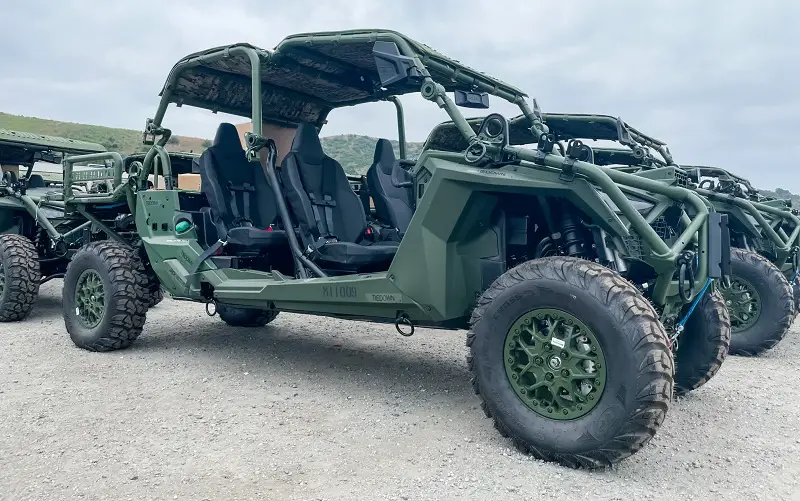U.S. Marine Corps Systems Command has begun fielding the new Ultra Light Tactical Vehicle, or ULTV, reaching initial operational capability and marking a significant milestone in the Corps’ Force Design 2030 modernization efforts. This state-of-the-art tactical vehicle is set to enhance infantry, reconnaissance, and logistics mobility and sustainability, providing the modern warfighter with an advanced, lightweight solution tailored for operations in an anti-access/area denial environment. Fielding operations will proceed in conjunction with the First Marine Expeditionary Force, based at Camp Pendleton, California. The first ULTVs have already arrived at I MEF, with 1st Battalion, 5th Marines receiving the initial vehicle set. An ongoing, structured roll-out will continue throughout the MEF, culminating in August, followed by additional fielding events across the Marine Corps.
“The ULTV is more than just a tactical vehicle; it enhances our capabilities across the board, ensuring the success of our mission and the safety of our Marines. The ability to rapidly configure the ULTV to suit diverse mission needs– from logistical support to electronic warfare– enhances our capabilities in previously unimagined ways,” said Program Manager for Light Tactical Vehicles Jennifer Moore.
“Fielding the ULTV serves as a signal that the Corps is keeping in stride with the ambitious roadmap laid out in Force Design 2030. This new capability will ultimately help forge a more agile and resilient Corps—one which is empowered to overcome the evolving complexities of modern warfare,” said Col. John Gutierrez, portfolio manager for Logistics Combat Element Systems.
The Ultra Light Tactical Vehicle (ULTV) a modular, off-road utility vehicle, is currently replacing the Utility Task Vehicle, or UTV, which has reached the end of its lifecycle. With its ability to be rapidly configured, the ULTV supports diverse infantry needs, ranging from logistical support and casualty evacuation to command and control and electronic warfare missions. Furthermore, the ULTV can be internally transported in the MV-22 and CH-53E/K, further facilitating rapid deployment. With a curb weight of around 3,000 lb, the vehicle can be airdropped by the Low Velocity Air Drop (LVAD) and Joint Precision Airdrop System (JPADS), internally loaded in a MV-22 tiltrotor or larger helicopters, and can also be sling-loaded. It has a range of 225 miles at its gross vehicle weight of just under 5,000 lb, can reach top speeds of more than 60 mph, and has an exportable power capability of 1 kW: a 20% increase over the MRZR D.















